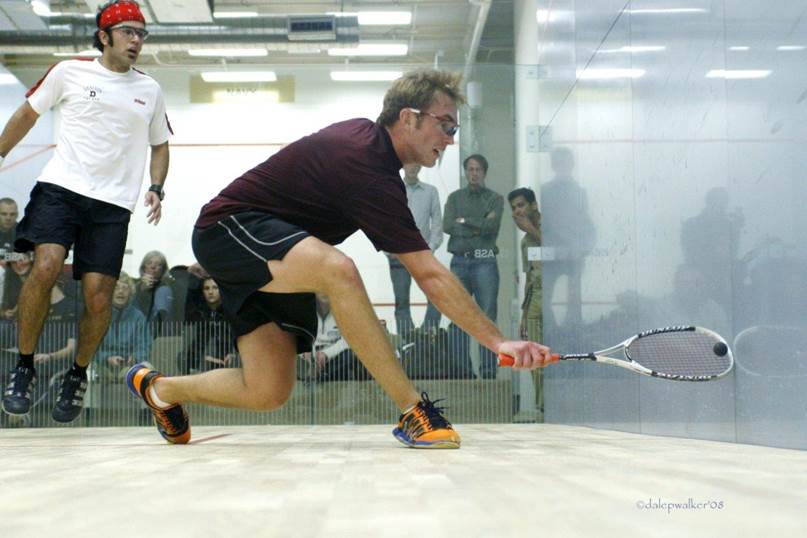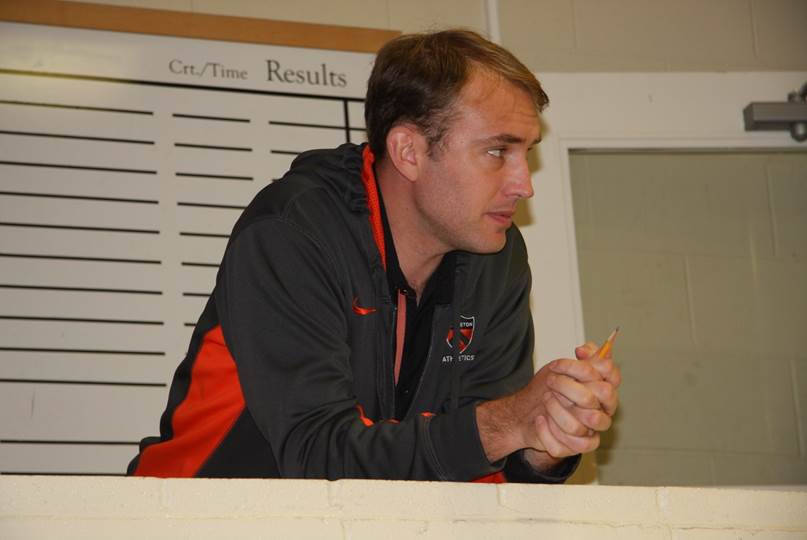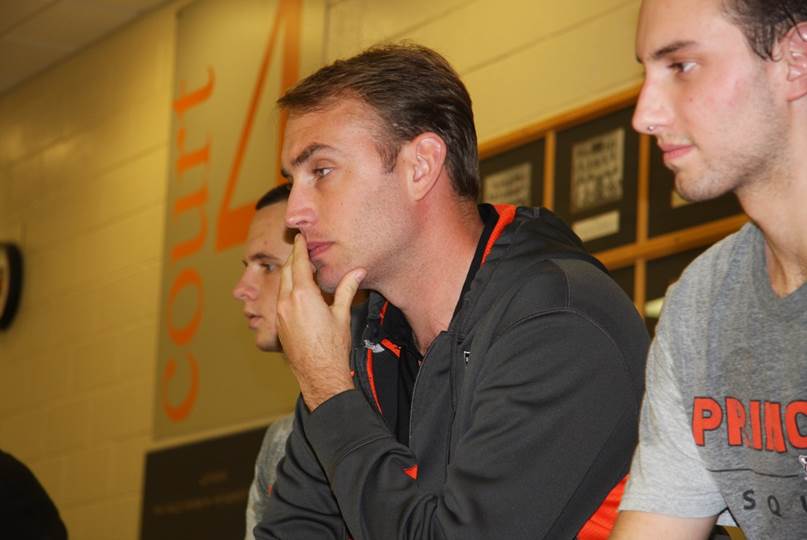Princeton University Head Coach Sean Wilkinson breaks down what it takes to go from college captain to assistant coach, and from an assistant coach to head coach.
Captain
 Earning the opportunity to be a captain at the collegiate level is a big deal. Being a captain is not a right or a resume builder, it is an honor and privilege. Leading your peers is an opportunity to develop a skillset that you might not have had the chance to do so before. Most coaches have the team elect the captains, and it is up to each individual to show their teammates that they are ready to shoulder the responsibility.
Earning the opportunity to be a captain at the collegiate level is a big deal. Being a captain is not a right or a resume builder, it is an honor and privilege. Leading your peers is an opportunity to develop a skillset that you might not have had the chance to do so before. Most coaches have the team elect the captains, and it is up to each individual to show their teammates that they are ready to shoulder the responsibility.
If you are elected captain, it is likely that you have naturally been developing a leadership style throughout your time on the team. Leadership can manifest itself in different ways. A good captain does not necessarily have to be loud and in your face, or be able to give a life changing speech before every match. However, captains are the first link in the leadership chain and you are responsible for setting the tone of the group. Finding your voice is important because the freshmen will look to you for guidance, and they will learn your every step and hang on your every word. Captains play a major role in creating the culture in the locker room, at practices, and on the bus. It is an opportunity to be a part of developing a team identity. To some people this comes very naturally – you work hard at practices, you are vocal after a good win and a heartbreaking loss, and you treat everyone in the group with respect.
I thoroughly enjoyed my time as a captain on the Bates team. I always tried to focus on the relationships between the players. I always felt that if we all had strong friendships, and at a minimum respected one another, we’d work hard for the group. My co-captains and I tried to hold everyone accountable, to make sure they understood that every action mattered. Now as a coach, I rely heavily on our team captains, and it is critically important that I develop a strong relationship with them. The captains are the pulse of the team, and their actions need to be indicative of what the coaching staff expects from the group as a whole.
Being a captain is a wonderful opportunity. I learned a tremendous amount about people, and how differently individuals respond to cues. I made mistakes, and I didn’t always say or do the right thing – it is not about being perfect. It’s about being yourself, and remembering that there is an entire team that is looking at you for support and guidance.
Assistant Coach
 There is a massive shift in roles between captain and assistant coach. In both of my assistant coaching roles, first as the assistant coach at Brown under Stuart Legassick, and then at Drexel under John White, I was fortunate to have been given the opportunity to explore all the different facets of college coaching. I had been heavily involved in the Bates program as a captain, but it was not until I started working with Stuart, that I began to fully comprehend the complexities associated with running a program. I had worked at Brown for about a month when I realized that I wanted to stay in college squash for life.
There is a massive shift in roles between captain and assistant coach. In both of my assistant coaching roles, first as the assistant coach at Brown under Stuart Legassick, and then at Drexel under John White, I was fortunate to have been given the opportunity to explore all the different facets of college coaching. I had been heavily involved in the Bates program as a captain, but it was not until I started working with Stuart, that I began to fully comprehend the complexities associated with running a program. I had worked at Brown for about a month when I realized that I wanted to stay in college squash for life.
A major difference between captain and assistant coach, is that you are now responsible the health and well being of a group of players. Many assistant coaches work with both the men’s and women’s teams, so time management is critically important. Stuart and John encouraged me to tackle all aspects of the job – I could not take in enough information. I wanted to recruit, run practices, take all the individual and small group sessions, run the fitness training, and attend every staff meeting. My thirst for the experience was insatiable. Stuart and John are both fantastic mentors, and I am very grateful for their guidance. I understood that I had the opportunity to learn from them, and I still call on them for help. Both of them taught me that there is much more to being a good college coach than simply knowing how and where to hit a squash ball.
While playing, I had seen how John Illig at Bates had managed the team, kept us happy and enjoying the game. It is no easy task. How do you motivate the group to practice well everyday, encourage them to manage their academics and social life, all while balancing squash at a high level? There isn’t one simple answer, and it’s important for an assistant coach to begin to develop his or her own management style.
Head Coach
 The realization that the buck stops with me, and no longer with Stuart or John hit me like a freight train. I was suddenly responsible for the team, a feeling that I cherished. I immediately knew that I had the best job in the world. In my first few months at Princeton, I was fortunate to spend quite a bit of time with Bob Callahan. I had so much more to learn, and I was honored to have the opportunity to listen to Bob talk so passionately about Princeton. I wanted to understand the culture of Princeton squash and what had made it so successful. In my conversations with Bob, it became apparent that he believed wholeheartedly in the nature of good people. He understood the need to have everyone pulling in the same direction.
The realization that the buck stops with me, and no longer with Stuart or John hit me like a freight train. I was suddenly responsible for the team, a feeling that I cherished. I immediately knew that I had the best job in the world. In my first few months at Princeton, I was fortunate to spend quite a bit of time with Bob Callahan. I had so much more to learn, and I was honored to have the opportunity to listen to Bob talk so passionately about Princeton. I wanted to understand the culture of Princeton squash and what had made it so successful. In my conversations with Bob, it became apparent that he believed wholeheartedly in the nature of good people. He understood the need to have everyone pulling in the same direction.
As an assistant, I had tried to learn as much about how to run practices, and recruit players as I could. As a head coach, you have to analyze a much bigger picture. I am not only planning today’s practice or the upcoming road trip, but also thinking about potential recruits three years down the line. It’s important that I provide direction for the program, not only in the short term, but in the long term too.
Every player should relish his walk down to Jadwin in anticipation of a great practice. Our practices are demanding, and detailed oriented. I expect my guys to throw themselves into every session and to relish their time not only on the team, but also with each other. I now pay much more attention to the details – for example, if a practice hasn’t gone well, I try to learn from my mistakes. Did I do a poor job explaining a drill, or was my body language off? In order to improve the next practice, I have to be able to pinpoint any shortcomings in my planning, and then be willing to make the appropriate changes. It is imperative that I am comfortable being myself, but that I am also able to continually learn.
The coaching staff at Princeton spends an awful amount of time discussing team dynamics, team culture, and the complex nature of team management. Neil Pomphrey, the longtime assistant coach at Princeton, has seen it all, and is a wonderful sounding board for me. We try incredibly hard to approach our guys not only as squash players, but also as student-athletes. We understand that the players are under a great deal of pressure to succeed in all aspects of their lives. We strive to create a sense of togetherness, a culture that is inclusive of all walks of life and opinions. I stress to our guys that success is not only defined by wins and losses, but that we should also take great pride in our achievements earned away from the courts. I set the tone for the program, and I have to communicate it clearly with the team.
There is no single way to teach a backhand drop or coach a team. The step-up from assistant coach to head coach required that I forge my own path. I tried to learn from some of the best in the business, but I knew that I wanted to create my own identity. College squash is a wonderful place to be, filled with tremendous people. I am grateful to be giving back to a sport that continues to surround me with wonderful student-athletes.





